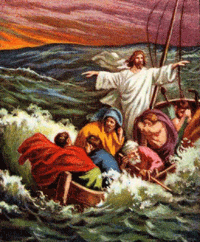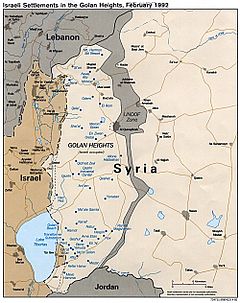
Do call upon your Holy Name,
Assure me Lord that you are near
With tender love, my heart inflame.
Once in the boat about to sink
In peace, they found You were asleep
They woke you up and heard you say
"Be calm, Be quiet, you stormy sea."
You calmed the raging windy sea
In solemn might and majesty
The sea obeyed your regal word
The waters calmed, retreated the waves.
When troubles load my tired self
And no one does or seems to care
In you I'll find a safe refuge
Thy Heart awaits, your love to share.
Sea of Galilee
The Sea of Galilee, also Kinneret, Lake of Gennesaret, or Lake Tiberias is the largest freshwater lake in Israel, and it is approximately 53 km (33 miles) in circumference, about 21 km (13 miles) long, and 13 km (8 miles) wide. The lake has a total area of 166 km2 (64 sq mi), and a maximum depth of approximately 43 m (141 feet).[3] At 214 metres (702 ft) below sea level,[4] it is the lowest freshwater lake on Earth and the second-lowest lake in the world (after the Dead Sea, a saltwater lake).[5] The lake is fed partly by underground springs although its main source is the Jordan River which flows through it from north to south.
 The Sea of Galilee (Kinneret) is situated in northeast Israel, near the Golan Heights, in the Jordan Great Rift Valley, the valley caused by the separation of the African and Arabian Plates. Consequently the area is subject to earthquakes and, in the past, volcanic activity. This is evident by the abundant basalt and other igneous rocks that define the geology of the Galilee region.
The Sea of Galilee (Kinneret) is situated in northeast Israel, near the Golan Heights, in the Jordan Great Rift Valley, the valley caused by the separation of the African and Arabian Plates. Consequently the area is subject to earthquakes and, in the past, volcanic activity. This is evident by the abundant basalt and other igneous rocks that define the geology of the Galilee region.
The lake often appears on maps and in the New Testament as Sea of Galilee or Sea of Tiberias (John 6:1). Sea of Tiberias is also the name by which the lake is mentioned in Roman texts and in the Jerusalem Talmud, which was written in a dialect of Judeo-Aramaic, and this is the name adopted in Arabic: ![]() Buhairet Tabariyya
Buhairet Tabariyya
| < Prev | Next > |
|---|
















